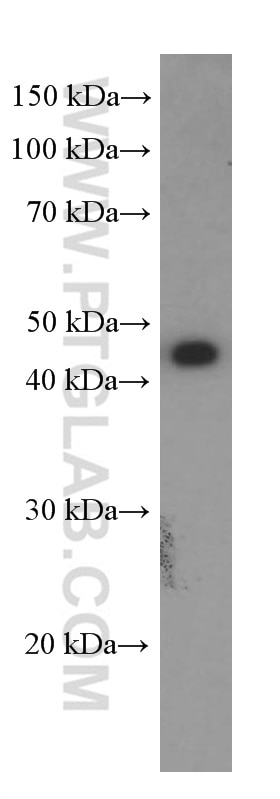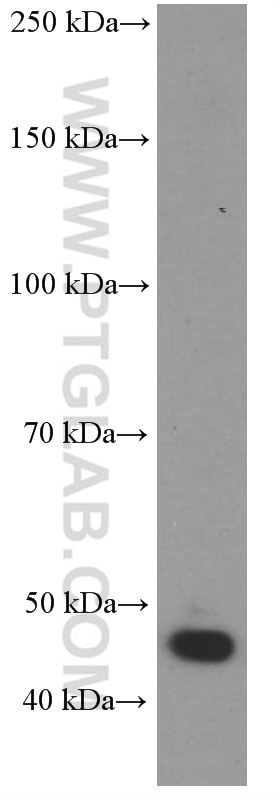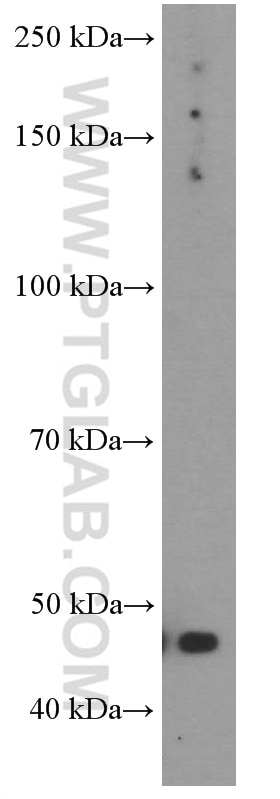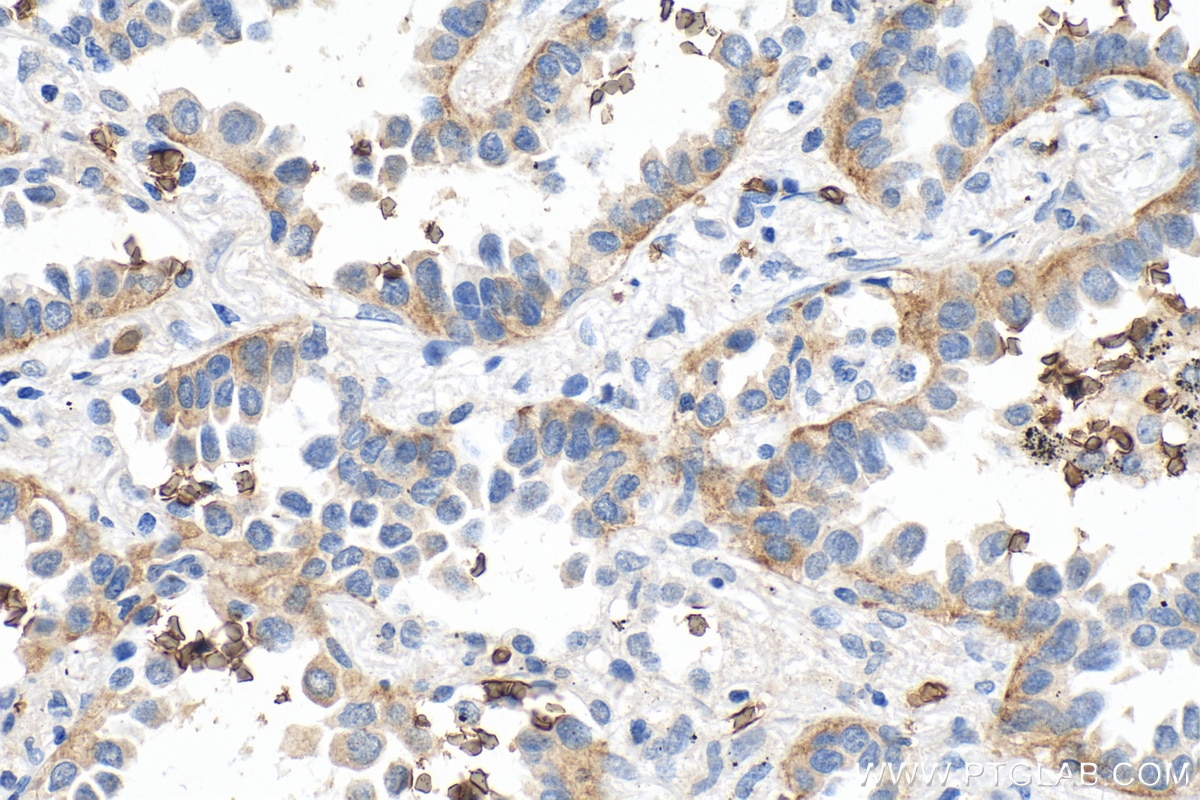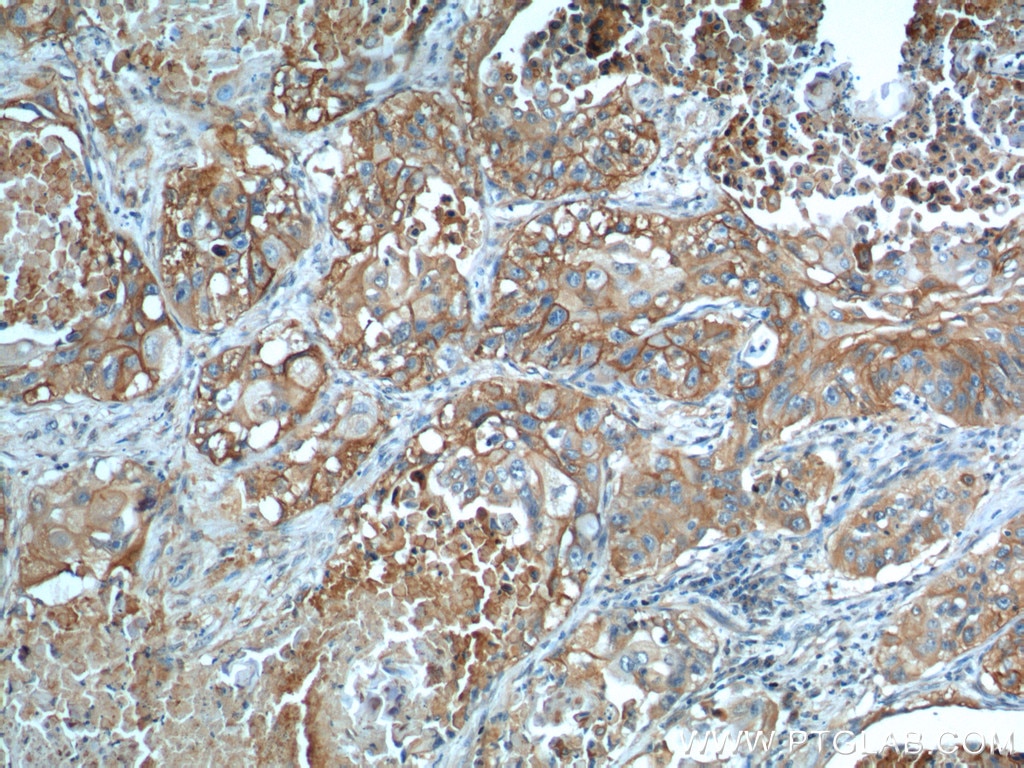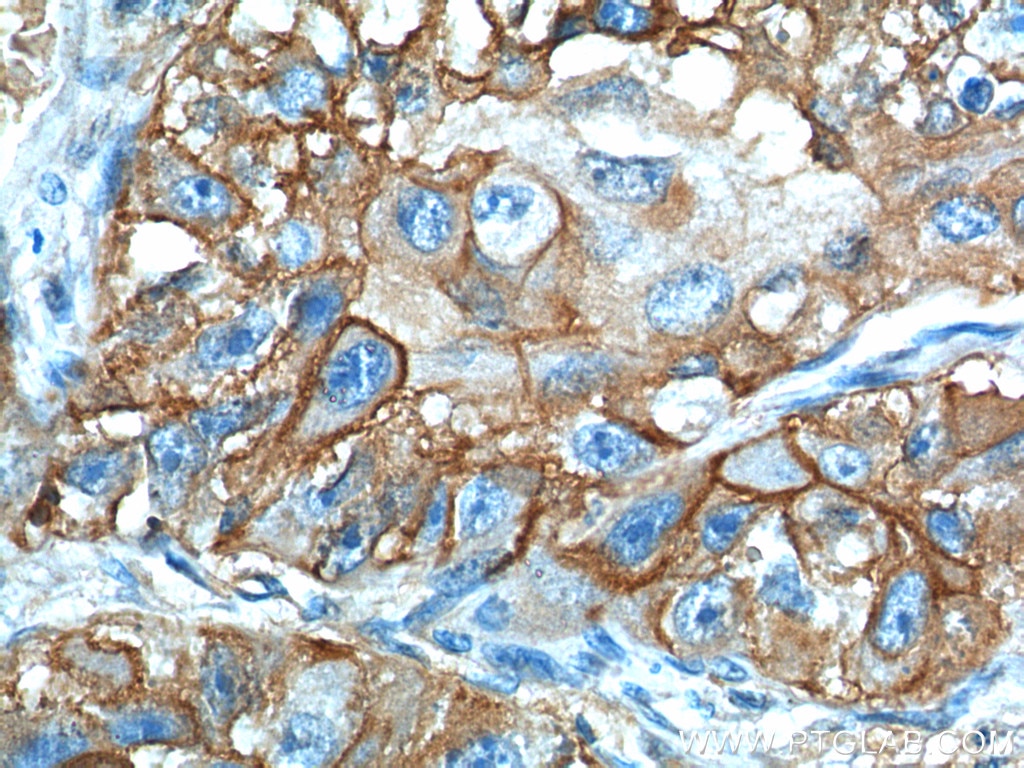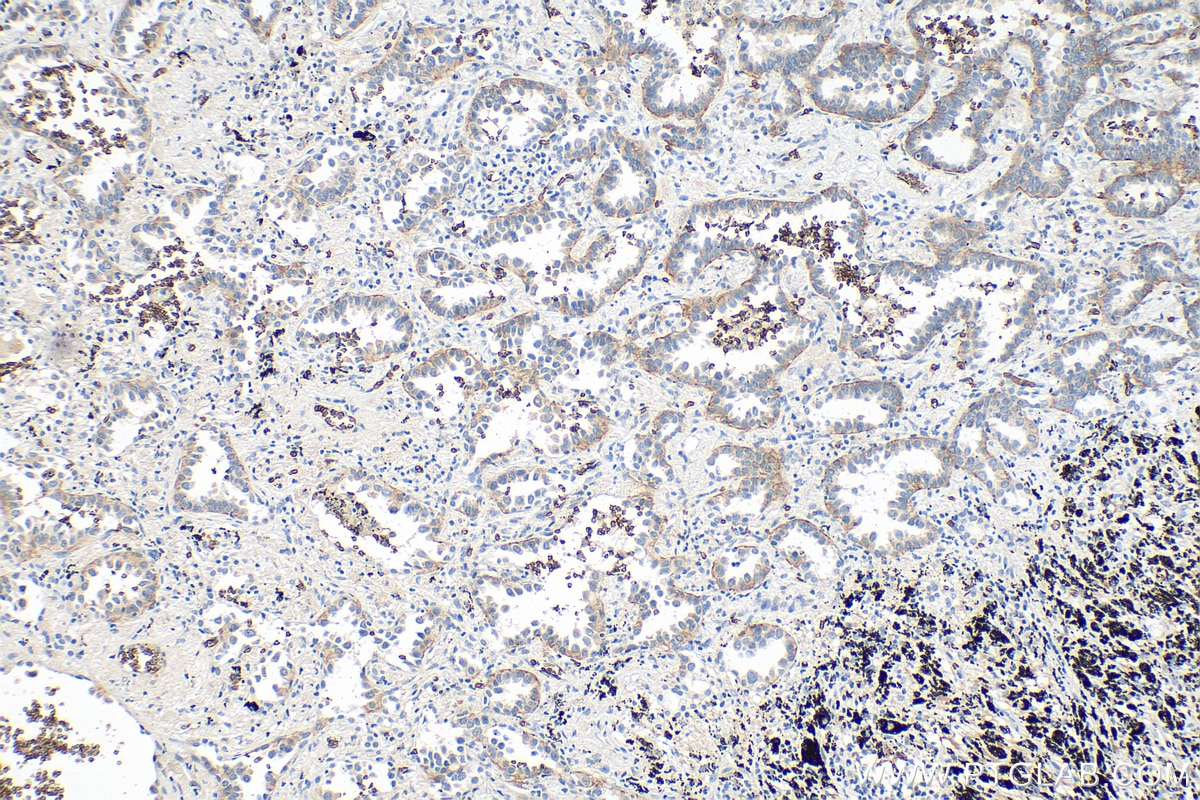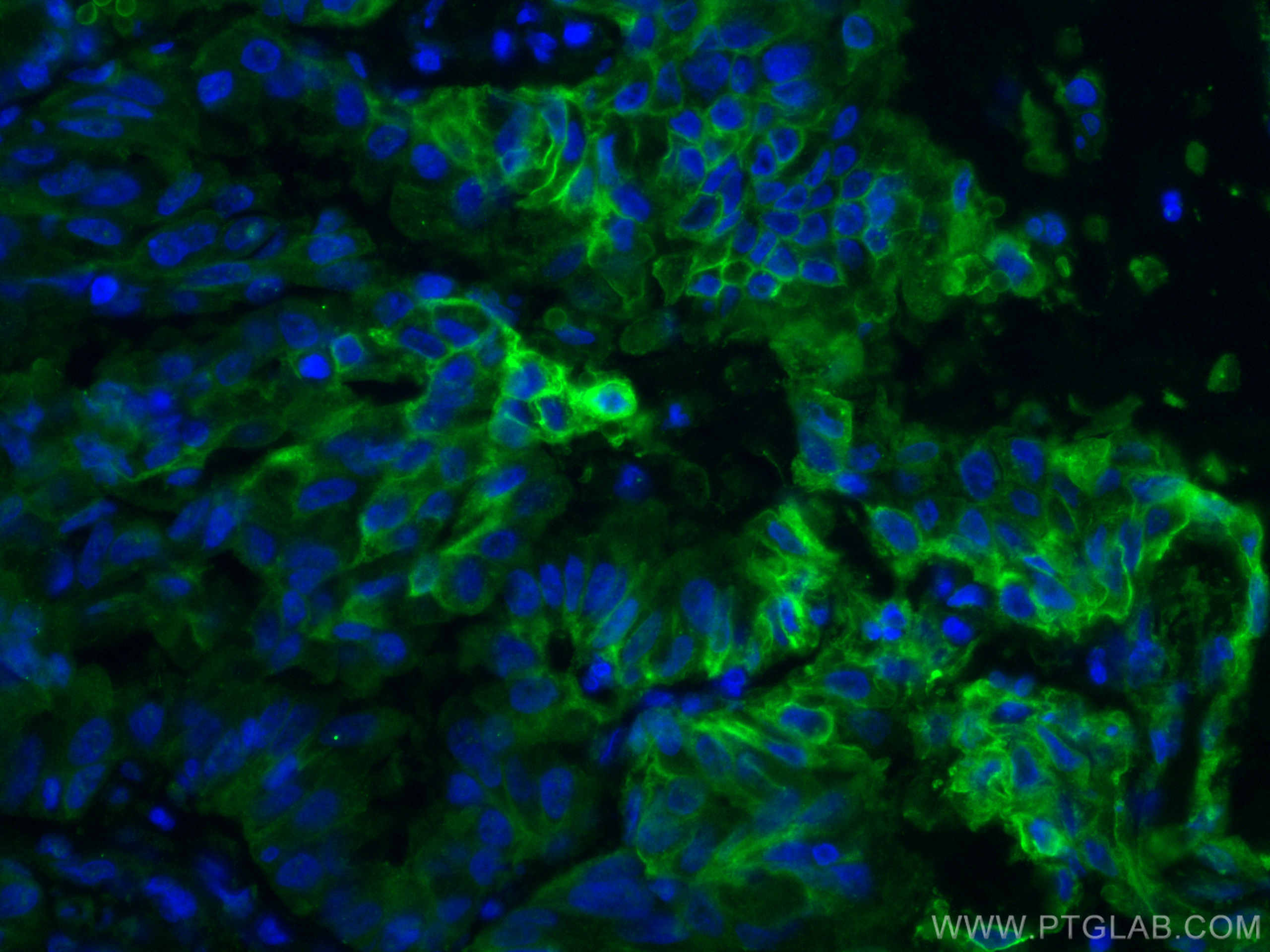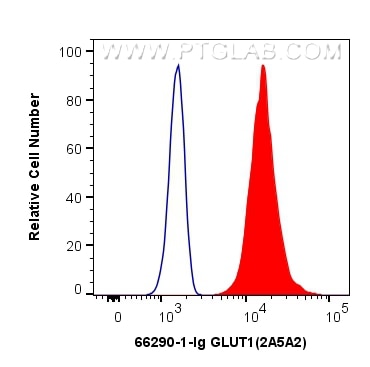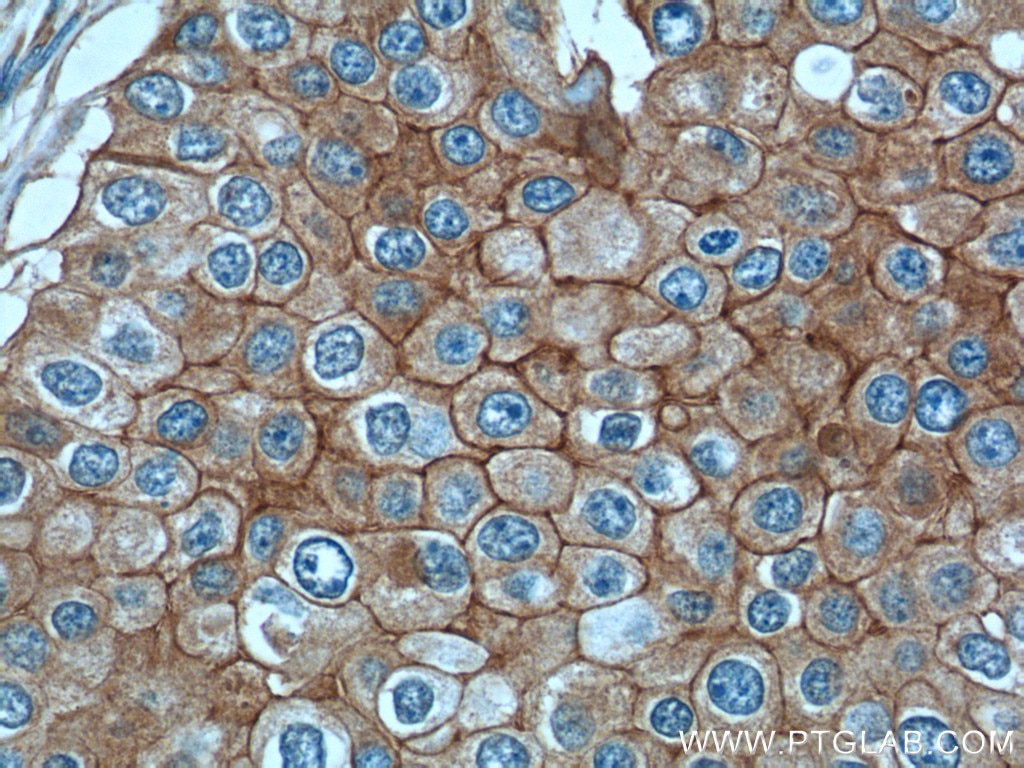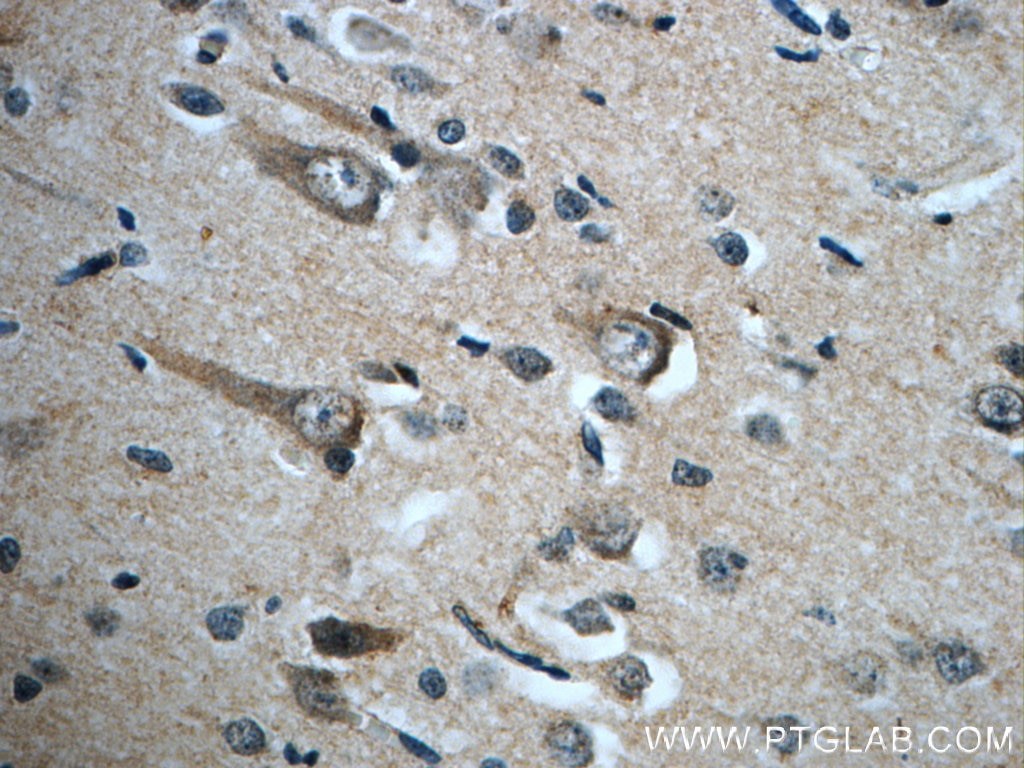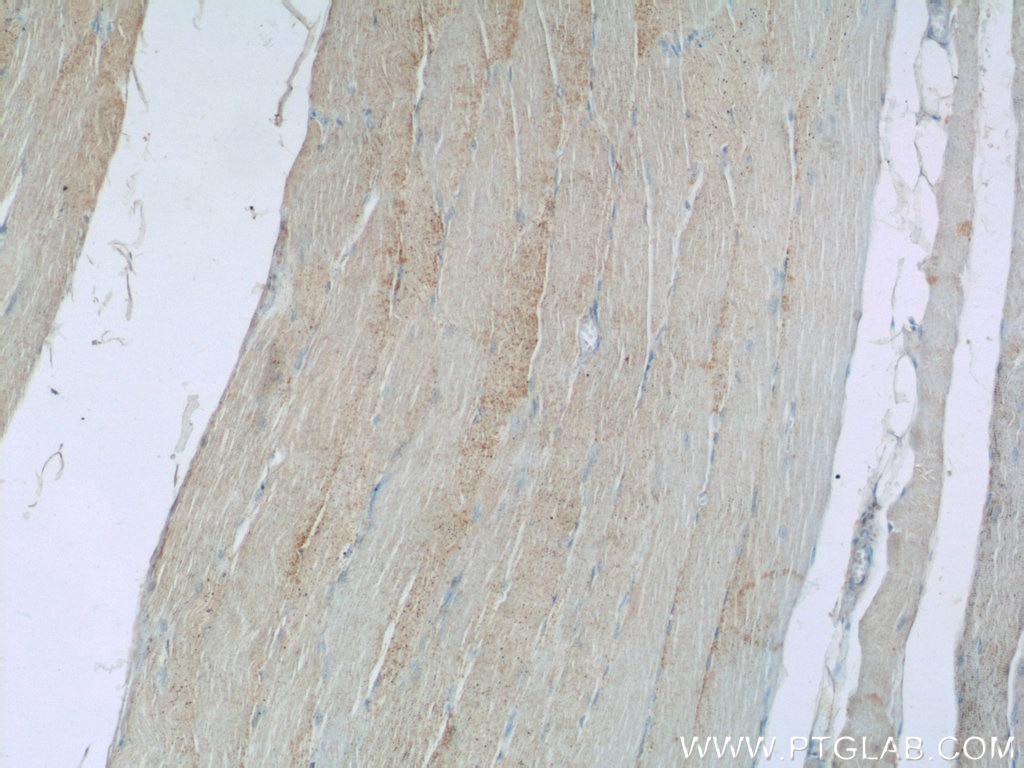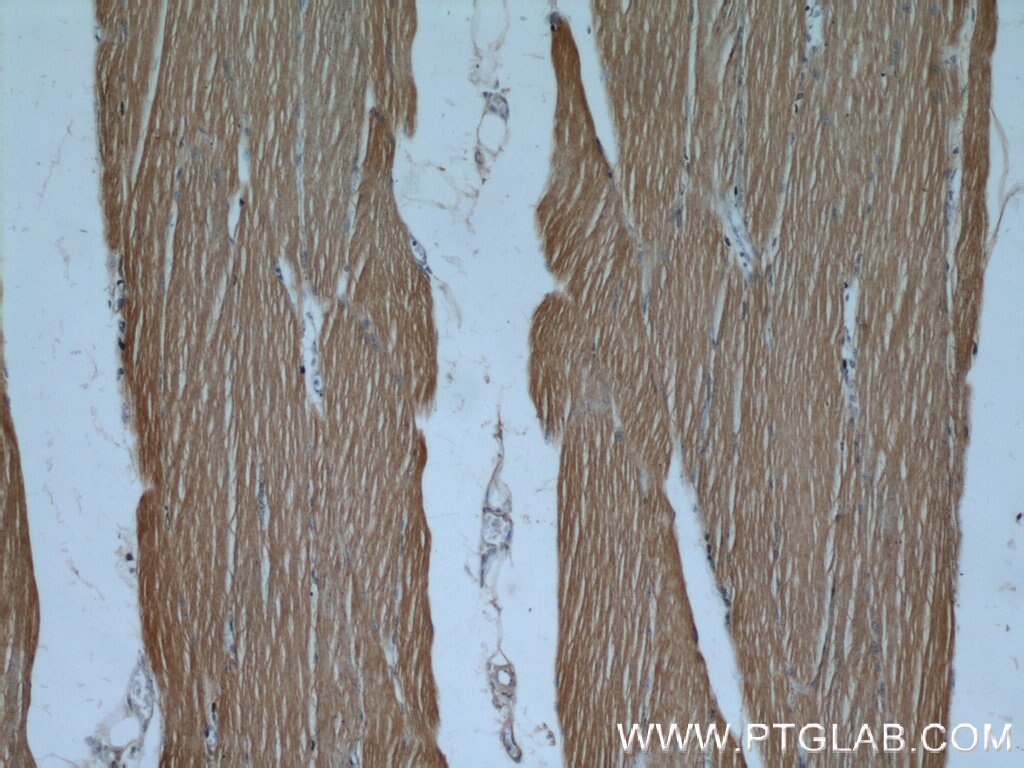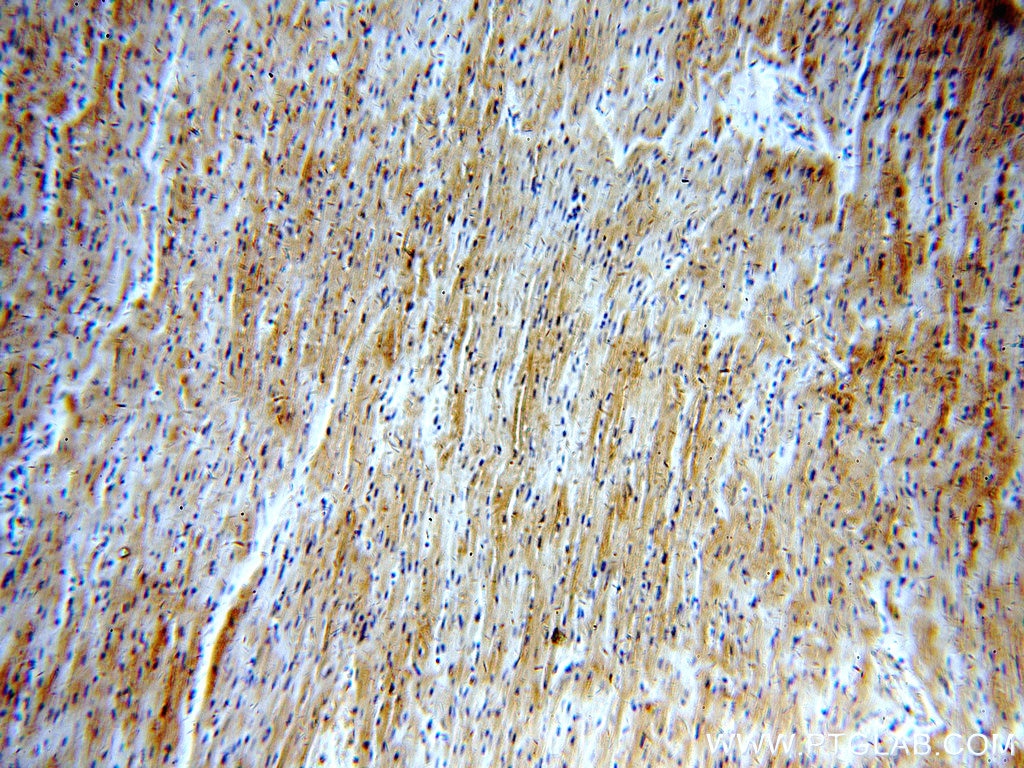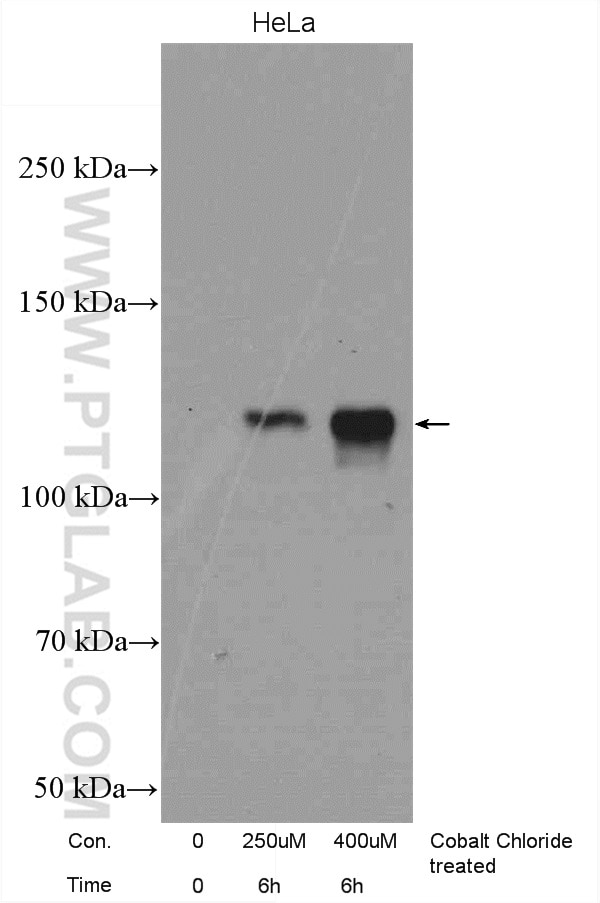- Featured Product
- KD/KO Validated
GLUT1 Monoklonaler Antikörper
GLUT1 Monoklonal Antikörper für FC, IF, IHC, WB, ELISA
Wirt / Isotyp
Maus / IgG1
Getestete Reaktivität
human, Maus und mehr (1)
Anwendung
WB, IHC, IF, FC, ELISA
Konjugation
Unkonjugiert
CloneNo.
2A5A2
Kat-Nr. : 66290-1-Ig
Synonyme
Galerie der Validierungsdaten
Geprüfte Anwendungen
| Erfolgreiche Detektion in WB | HEK-293-Zellen, NIH/3T3-Zellen |
| Erfolgreiche Detektion in IHC | humanes Lungenkarzinomgewebe Hinweis: Antigendemaskierung mit TE-Puffer pH 9,0 empfohlen. (*) Wahlweise kann die Antigendemaskierung auch mit Citratpuffer pH 6,0 erfolgen. |
| Erfolgreiche Detektion in IF | humanes Lungenkarzinomgewebe |
| Erfolgreiche Detektion in FC | Jurkat-Zellen |
Empfohlene Verdünnung
| Anwendung | Verdünnung |
|---|---|
| Western Blot (WB) | WB : 1:500-1:3000 |
| Immunhistochemie (IHC) | IHC : 1:1000-1:4000 |
| Immunfluoreszenz (IF) | IF : 1:200-1:800 |
| Durchflusszytometrie (FC) | FC : 0.40 ug per 10^6 cells in a 100 µl suspension |
| It is recommended that this reagent should be titrated in each testing system to obtain optimal results. | |
| Sample-dependent, check data in validation data gallery | |
Veröffentlichte Anwendungen
| KD/KO | See 2 publications below |
| WB | See 33 publications below |
| IHC | See 9 publications below |
| IF | See 5 publications below |
| FC | See 1 publications below |
Produktinformation
66290-1-Ig bindet in WB, IHC, IF, FC, ELISA GLUT1 und zeigt Reaktivität mit human, Maus
| Getestete Reaktivität | human, Maus |
| In Publikationen genannte Reaktivität | human, Maus, Ratte |
| Wirt / Isotyp | Maus / IgG1 |
| Klonalität | Monoklonal |
| Typ | Antikörper |
| Immunogen | GLUT1 fusion protein Ag17108 |
| Vollständiger Name | solute carrier family 2 (facilitated glucose transporter), member 1 |
| Berechnetes Molekulargewicht | 492 aa, 54 kDa |
| Beobachtetes Molekulargewicht | 45-55 kDa |
| GenBank-Zugangsnummer | BC121804 |
| Gene symbol | SLC2A1 |
| Gene ID (NCBI) | 6513 |
| Konjugation | Unkonjugiert |
| Form | Liquid |
| Reinigungsmethode | Protein-G-Reinigung |
| Lagerungspuffer | PBS mit 0.02% Natriumazid und 50% Glycerin pH 7.3. |
| Lagerungsbedingungen | Bei -20°C lagern. Nach dem Versand ein Jahr lang stabil Aliquotieren ist bei -20oC Lagerung nicht notwendig. 20ul Größen enthalten 0,1% BSA. |
Hintergrundinformationen
Glucose transporter 1 (GLUT1), also known as solute carrier family 2, facilitated glucose transporter member 1 (SLC2A1), is a uniporter protein responsible for the transport of glucose in many cell types and across the blood-brain barrier.
What is the molecular weight of GLUT1? Is GLUT1 post-translationally modified?
There are two forms of GLUT1 transporter that differ in their molecular weight. The 45-kDa form is found in glial cells, while the 55-kDa form is present in the endothelial cells regulating glucose transport over the blood-brain and blood-tissue barriers (PMID: 9630522). N-glycosylation of asparagine at position 42 is the only known post-translation modification of GLUT1 (PMID: 3839598).
What is the subcellular localization of GLUT1?
Glucose transporters, including GLUT1, are multiple-pass integral membrane proteins. GLUT1 is present at the plasma membrane but is also a subject of recycling between plasma membrane and endosomes.
What molecules can be transported by GLUT1?
The main substrate of GLUT1 transport is glucose, but it can also transport galactose, mannose, glucosamine, and reduced ascorbate.
What is the tissue expression pattern of GLUT1?
GLUT1 is expressed by many cell types but the highest levels are observed in erythrocytes and in the central nervous system (astrocytes). GLUT1 is responsible for glucose transfer across the blood-brain and blood-tissue barriers, including placental transport.
Protokolle
| Produktspezifische Protokolle | |
|---|---|
| WB protocol for GLUT1 antibody 66290-1-Ig | Protokoll herunterladen |
| IHC protocol for GLUT1 antibody 66290-1-Ig | Protokoll herunterladen |
| IF protocol for GLUT1 antibody 66290-1-Ig | Protokoll herunterladen |
| Standard-Protokolle | |
|---|---|
| Klicken Sie hier, um unsere Standardprotokolle anzuzeigen |
Publikationen
| Species | Application | Title |
|---|---|---|
Cell Metab Di-methylation of CD147-K234 Promotes the Progression of NSCLC by Enhancing Lactate Export. | ||
ACS Nano Dual Inhibition of Endoplasmic Reticulum Stress and Oxidation Stress Manipulates the Polarization of Macrophages under Hypoxia to Sensitize Immunotherapy. | ||
Mol Cell TCR activation directly stimulates PYGB-dependent glycogenolysis to fuel the early recall response in CD8+ memory T cells. | ||
Nat Commun Fasting inhibits aerobic glycolysis and proliferation in colorectal cancer via the Fdft1-mediated AKT/mTOR/HIF1α pathway suppression. | ||
Brain C9orf72 expansion within astrocytes reduces metabolic flexibility in amyotrophic lateral sclerosis. | ||
Rezensionen
The reviews below have been submitted by verified Proteintech customers who received an incentive forproviding their feedback.
FH Hua (Verified Customer) (09-06-2023) | Works ok in WB. Signal is weak and background is not very clean.
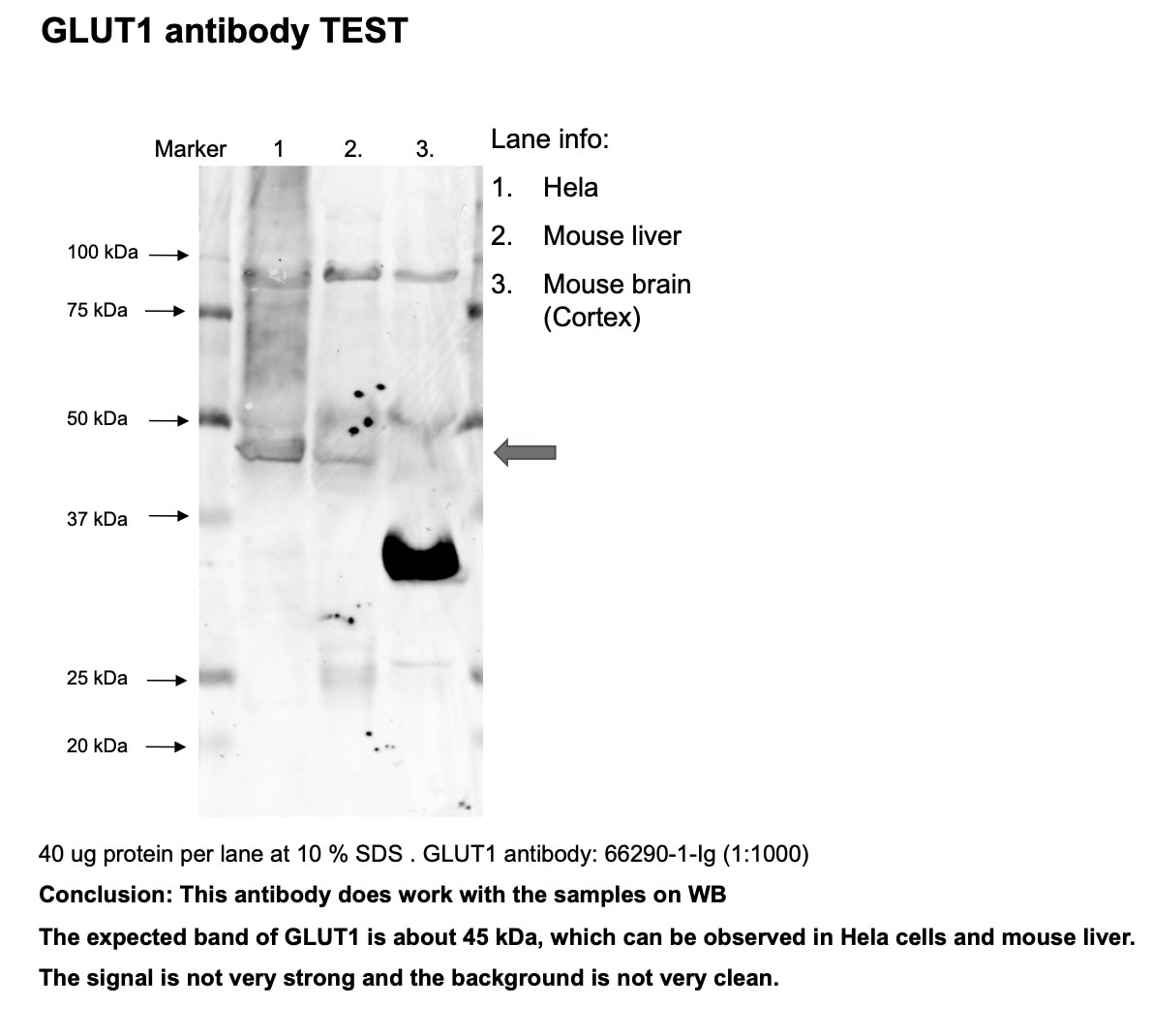 |
FH Iru (Verified Customer) (04-23-2019) | This antibody works ok-ish, even though the protocol says use 1:1500 to 1:3000, I have to use 1:500 to see the bands.
|
